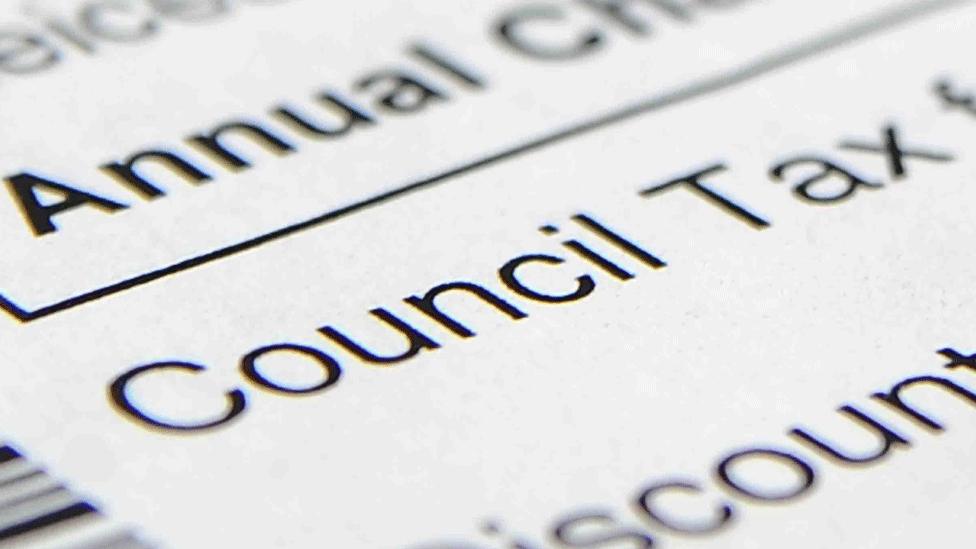What did Scotland's parties promise on council tax?
- Published
During May's Holyrood election each of Scotland's political parties set out how they would reform council tax. As MSPs decide to increase the top four bands of council tax, we re-cap on what parties were saying six months ago.

SNP
Scotland's four highest council tax bands would pay more
the band E household pay about £2 per week more, and the average household in the highest band about £10 a week more to raise £100m a year for education
the council tax freeze will also end in 2017, with councils then able to increase the tax by up to 3% a year

Scottish Labour
abolish the council tax
introduce a system based on the value of a property
empower local government and broaden the burden of local taxes through the devolution of tax raising powers including a tourist tax, land value tax and surplus from the crown estate
local councils will decide whether or not to use these powers

Scottish Conservative
increase in council tax in top two bands
capped increases in council tax, and protection for families in B and E and F homes
yet to outline full council tax reform choices, however the Conservative independent commission recommended the council tax freeze should end and rates should be allowed to change within upper and lower limits set by negotiation between local and central government
the commission said the banding structure should be maintained, but the progressiveness of the multiplier should be adjusted while protecting low income households across all bands

Scottish Liberal Democrats
local policing plans to be approved by local authorities
giving councils the powers to set local domestic and business taxation
allow local communities to establish a burgh council to serve their area
a "fairer system of local taxation to replace the Council Tax"

Scottish Green Party
abolish the Council Tax with a replacement Residential Property Tax (RPT) for individual properties based on annually updated values
a five-year transition period and options to reduce or defer payment depending on circumstances
devolving more powers to local councils and requiring them to include local communities in decision making
Local Democracy Act would enshrine a clear duty to promote community participation in all local decisions about taxation; spending and services